Introduction to the VOLUMES archive
Brief introduction of your LEARN and your project / research:
VOLUMES is a non-profit organisation and collective which was created in Zürich in 2013 to support the local and international DIY-facet of art publishing and introduce it to a larger audience in Switzerland. Exploring the creativity gravitating around the practices of independent art publishing, our events propose book fair sections, exhibitions performances, workshops, projections talks or symposiums.
The VOLUMES Archive LEARN aims to research new forms for organising and understanding the paradigm of the archive, using our own collection of zines, artist books and publications as a site of investigation. This collection has existed since 2013, thanks to the many donations we receive annually for our international open call exhibition at VOLUMES, Art Publishing Days. Since 2016, we have worked towards expanding specific sections of this collection. The first section we developed in 2016 was a collection of artist books connected to the social history of Zurich (Zurich archive). In 2017, artist Paloma Ayala and curator Adriana Dominguez curated a selection of zines, posters and videos, as a VOLUMES Mexican focus (MEXA archive). In 2018, the interdisciplinary research group TETI curated a selection of artist books and audio files in Corner College (Hinterland archive). In 2018, Deficit art book fair in Moscow donated a collection of Russian zines (Russian Material). In 2018 and 2019, the Santiago art book fair Impresionante and historian Jose Cáceres showcased political zines and posters from Chile, within two VOLUMES exhibitions (Chile Despertó). In 2020, curators Miwa Negoro, Camille Regli and Giovanna Bragaglia selected publications from our archive library for the OnCurating exhibition space (Inter:archive).
Archives are normally understood as a coherent form of organization, having as objectives to unify, identify, classify the elements within a determined body of documents, objects, etc. The VOLUMES Archive is on the contrary a diverse collection of material that has been mostly donated through the International Open Call Exhibition within the VOLUMES book fair since 2013. Therefore, it presents a challenge to the classical idea of archival categorization because there hasn’t been any systematic process of selection and articulation – besides the different sections that have been donated as such. Probably, the one common aspect within the collection is the medium: it consists of printed material, but because they are embedded in the DIY-facet of art publishing, the variety of their aesthetics, goals, themes etc, reinforces the idea of a distinctive collection that lies beyond the “rules” of archiving. Taking this contradiction as a starting point, we embarked on a research about new forms of categorization and activation that take differences, associations, interstices and lacunas as categories to re-think the paradigm of the archive and permit us to develop new appropriate tools for the VOLUMES Archive.
Our LEARN is composed of a varied group of artists, curators, publishers, researchers. Each member has different experiences from the framework of self-publishing and/or archiving. This allows us to aim for a multiple, non-hierarchical, interpretative conception of the archive. In this way, the collaboration takes the form of a rhizomatic process in which the heterogeneity and multiplicity of our decentered collectivity meets productively in the archive. During our time at SOC, our LEARN was composed of the three working groups: inter:archive, MEXA! and Nature/City.
inter:archive is an ongoing experimental project by curators Giovanna Bragaglia, Miwa Negoro, and Camille Regli. Revisiting and activating the VOLUMES Archive from a queer and intersectional approach, inter:archive gathered material – in various art publishing formats – ranging from speculative fiction, performative scripts, artist zines, picture book, photography booklet to a collection of artistic manifestos. The inter:archive archive section for VOLUMES serves as a space for imagining plural futurities, going beyond the mere storage or categorization of archival sources. The section intends to grow with time, including more publications by local and international art practitioners. inter:archive collects and interacts with the multiple voices, literatures, sources and artistic positions that endeavor to emancipate intersectional lived experiences.
Giovanna Bragaglia, Miwa Negoro, and Camille Regli put a special highlight on one VOLUMES artist book, “Mistress in Switzerland”, by Alina Kopytsa, published and exhibited at the Art Publishing Days in 2017. The publication is introduced through a short video: https://vimeo.com/486818578
MEXA! is a collection of independent publications from Mexico by artist Paloma Ayala and curator Adriana Dominguez, initially commissioned by VOLUMES in 2017 as an exhibition for their annual Art Publishing Days. Since then, the collection was reactivated at VOLUMES 2019, and has increasingly become a project focused on feminist content. During the summer of 2020, MEXA! collected feminist hashtags from around the world, to share information about them. Additionally, it created a collection of hashtags for pandemic times, which were invented by the visitors of their website. Using the hashtags for pandemic times -which revolve around topics of feminism, eco-feminism, care-work and community- as a filter to review the collection, a selection of around 20 publications was made for the VOLUMES archive. Extracts of each publication have been chosen and gathered in clusters in order to address each specific topic.
#Pandemic Hashtags and MEXA! Collection: How the activation works: Hashtags under each cluster are color coded according to the information they contain:
#green - Title of publication part of MEXA! Archive
#dark green - a description of the publication
#red - artist, author, editor, curator
#dark red - a description of red, titles of projects done by #red
#purple - #Hashtag for Pandemic Times
#brown- #Hashtag MEXA! Female Takeover
##pink - Double hashtag, an activist BOMB!
blue - hyper-link
<img source: “ “> - image quote
<division box> - Title of cluster
<div page> - One <division box> can be divided in <div pages>
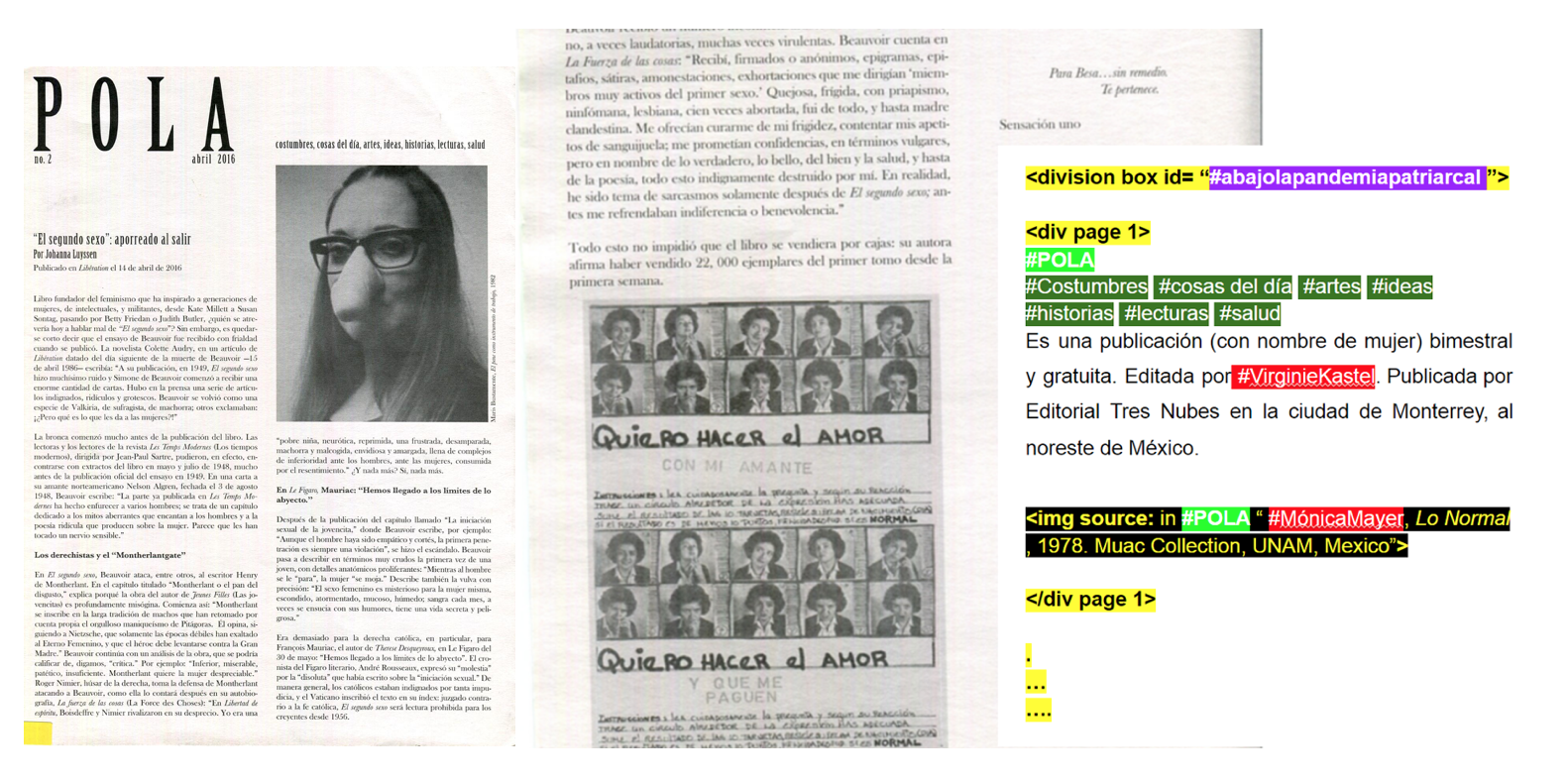
More about MEXA here: https://www.lacapsula-zh.com/mexaonline
The nature/city archive by TETI group (historian and curator Jose Cáceres, artist Anne-Laure Franchette, art historian Gabriel Gee) explores the tensions from nature-city entanglements within the VOLUMES Archive. A first selection of publications was exhibited in October-November 2020 within the frame of the exhibition Oops a daisy! (Urban Management Remix) curated in collaboration with Dietikon Projektraum. The exhibition departed directly from the nature/city archive and took place in the former ‘Bauamt’ (public construction authority) from Dietikon. Now in a precarious state, the building illustrates the ambiguities of city planning. The place where decisions concerning the development of the city were made, is itself being renovated and transformed into a site of urban growth and its inherent contradictions. A city is a place produced by multiple agents, humans, and more-than-humans. Politics and socio-economic interests model our cities. Gentrification and real estate speculation dislocate people and define the limits of urbanization. But there are other worlds inside these cities. Animals mark their territory with scent glands, marks, or urine creating their own visual and olfactory geographies. Weeds grow on sidewalks against the rationale of hygienic urban control. Viruses circulate through the webs of globalization forcing people to stay indoors. A city is a complex web of polyphonic co-existences and temporalities that contest the distinction between organic and artificial growth. To understand these tensions the exhibition considers present efforts to go beyond the nature and culture divide inherited from Western knowledge. How can we engage with our local environments in a way that reduces the tension brought about by the ongoing commodification of ‘Nature’? There is violence at play in the architectural and urban design of our planet, our continents, our cities and villages, evident in its systematic measurement, division, and productive ambitions. How then do we negotiate these tensions, these pressures, these settled or uncertain futures? What is the position, the role, the voice of the animals in the urbanizing machine, or indeed that of the minerals, the forest spirits, and herbs and weeds someone forgot to eradicate by the building site? The selection of publications and artworks called attention to the multiple forms that experiences of the sprawling city can take, and how attention to intangible, individual, and collective appropriation of the seemingly faceless pace of progress can open fruitful unchartered territories, where alternative forms of knowledges may if queried, reveal the secret passages to a disputed urban reality. All publications can be consulted at the VOLUMES archive.
Text © Dietikon Projektraum & TETI Group
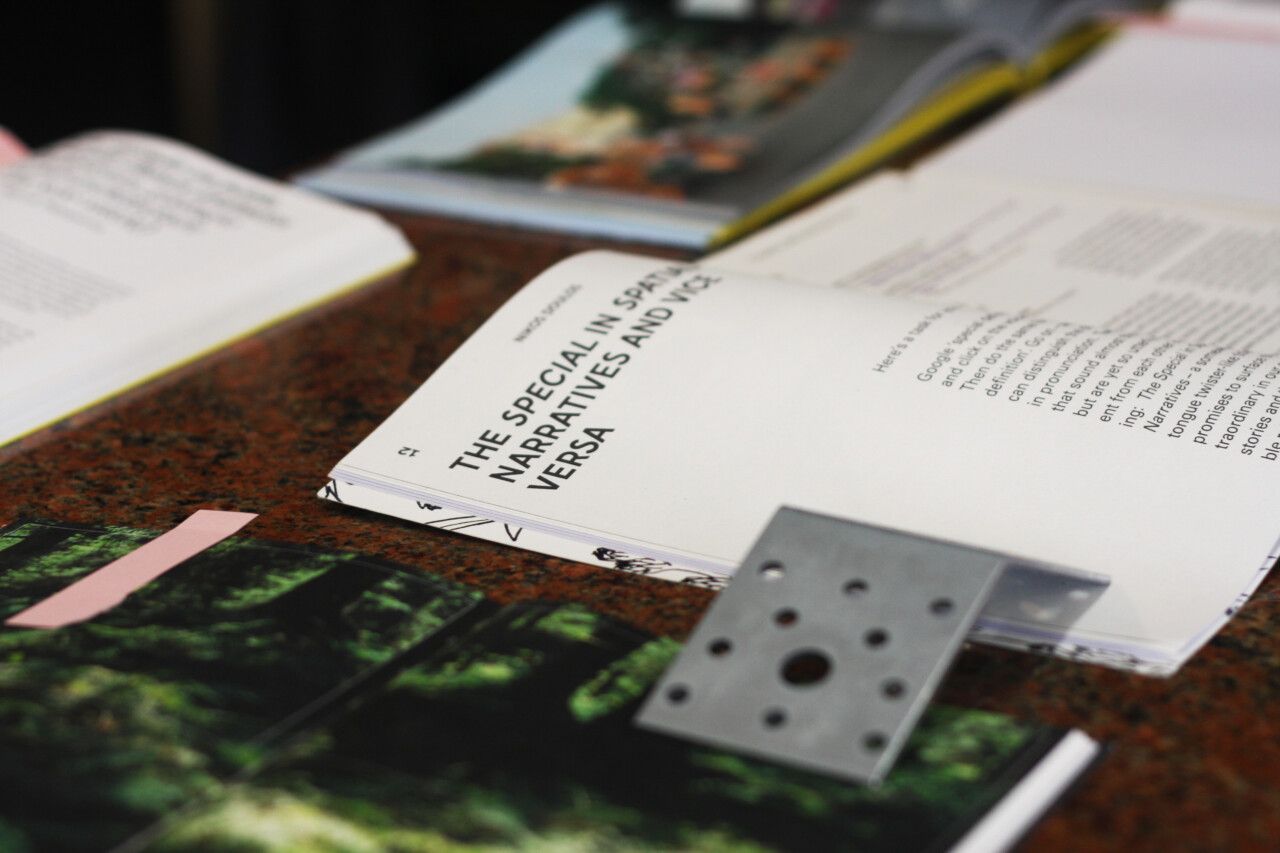
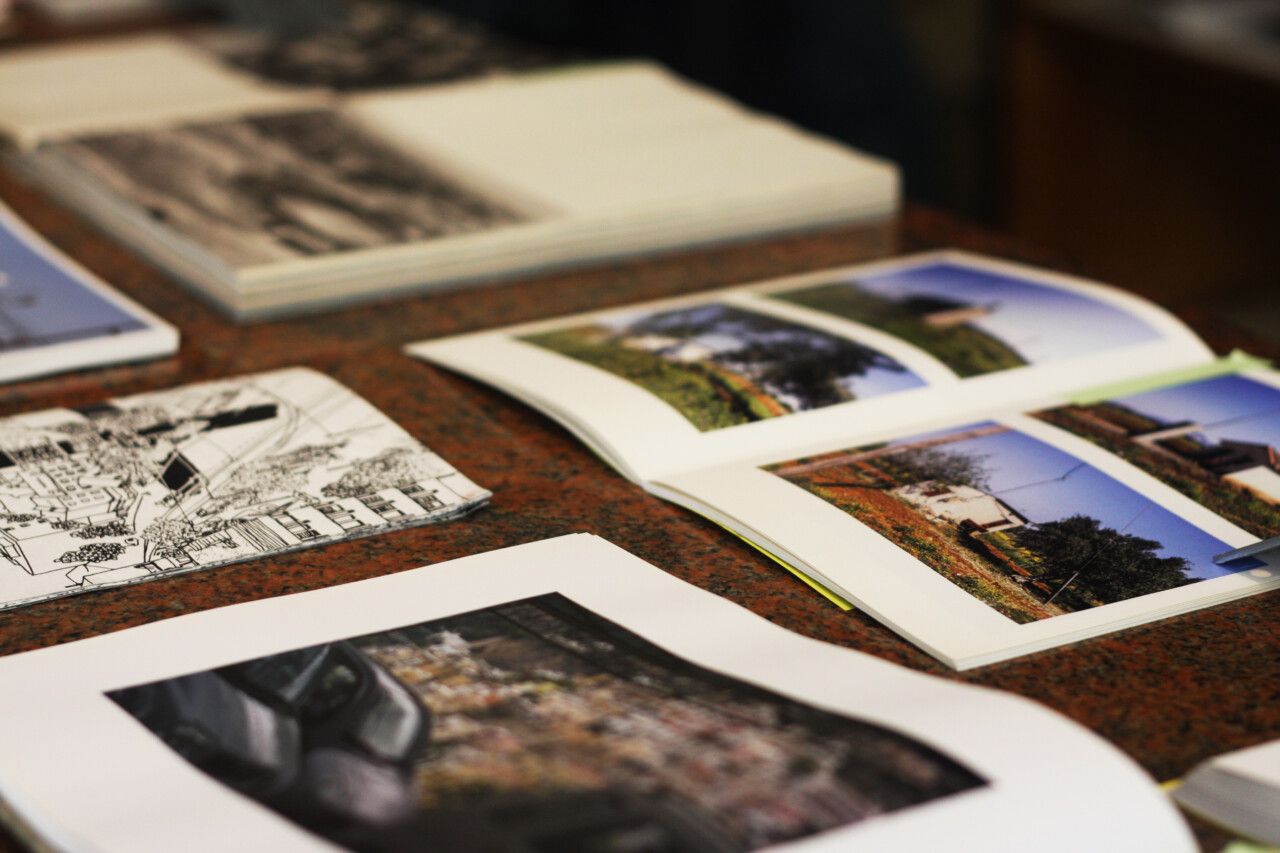
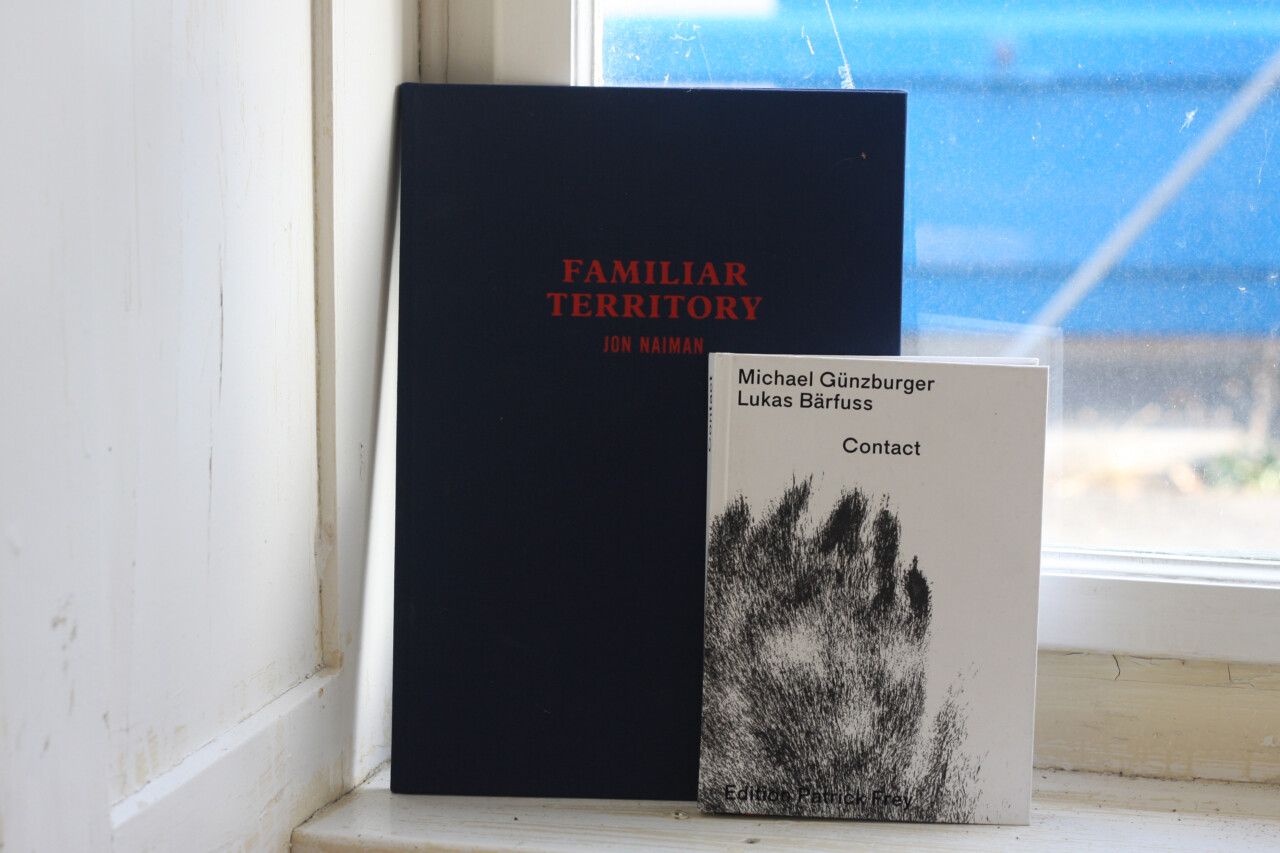
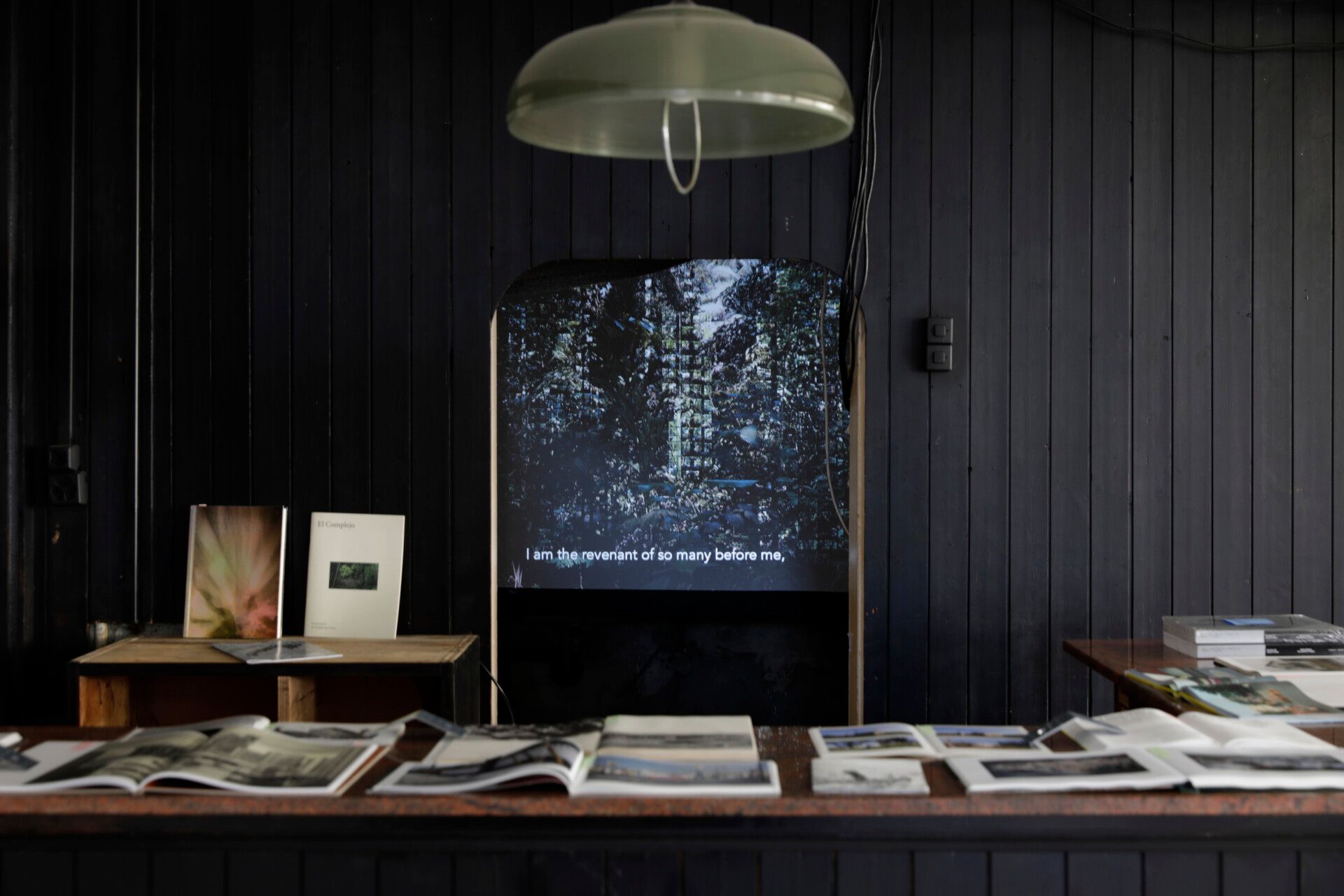
What did you learn by working collaboratively within the context of SoC?
The idea for our VOLUMES LEARN was to explore in group how artists, curators, publishers and researchers experience nowadays the use of archives and the impulse to edit the content within it. To do this, we brought together the people we had been working with so far, in order to deepen our exchange and experiment with possible methodologies around the organization, navigation and maintenance of our collection. We first planned a few days of collective archive-marathon, to go through the content, think about lists and categories but mainly making sense of it together. Our rhizomatic approach was significantly intensified by the unexpected situation created by COVID-19, due to which we couldn’t meet regularly to work. Taking further the rhizomatic analogy –rhizomes may break as well and create new roots–, the actual situation only permitted us to start new perspectives. We had to adapt to the situation and think about new ways to look at and activate the book collection.
We first met on zoom to discuss different options and quickly decided to split the group into three sub divisions, according to everybody’s personal projects and interests: Nature/City, inter:archive and MEXA! Each group extracted content from the VOLUMES archive and worked on it independently from the other groups but following the same objective: creating a new physical and online section for the VOLUMES archive. To showcase the research of all three sections, we looked at the possibilities of digital representation via our website to create a visual narrative that corresponds to this non-lineal idea of systematization. Each section’s goal was to find associations and distinctions, singularities and commonalities, coalitions and ruptures between the publications, following the grid provided online by our graphic designers. Formats of activation (podcast, essays, photographic series, videos, etc.) that elaborated on these relations were also discussed and developed. Inter:archive created a video presentation of one of their section’s publications, MEXA! collected series hashtags connected to the publications in their section and suggested to work on a zine format, Nature/City produced short films about their section, co-curated an exhibition and organised an online discussion. The most important lesson we learnt during our year at SOC was having to slow down. Everyone was affected differently and we really had to listen to everyone’s needs and rhythms. Within our LEARN, we therefore only produced what made sense to the participants.
What excites us for the months to come is integrating the results of this case of study and defining lines of application to the VOLUMES Archive as a whole. Reaching our original goals of cataloging (database and physical archive form), activation (website) and presentation (exhibitions) of the complete Archive is also on the map. Out of this year’s experiments and exchanges, we are currently aiming at establishing a multi-format series which generates different sets of knowledge within the collection. To do so, we have invited more artists, curators, researchers to extract content from our archive collection and suggest new additions, curating new sections, which will be showcased on our website and activated according to the participant’s wishes. This initiative is therefore continuing beyond our days at SOC and we are very grateful to have been given this time, support and space.
More about VOLUMES here: www.volumeszurich.ch
Anne-Laure Franchette
Artist researcher and curator Zürich Suisse
Gabriel N. Gee
Art historian and writer, Lugano, Zürich Suisse
Paloma Ayala
Paloma (b. 1980, Matamoros, Mexico) is a visual artist interested in empowering the relationship between domestic living strategies and political contexts.
Adriana Domínguezis
Adriana an Art Historian and Independent Curator from Mexico.
Miwa Negoro
Miwa is a curator and researcher working at the intersection of art and performing arts.
Giovanna Bragaglia
Giovanna is an independent curator.
Camille Regli
Camille is a curator whose interest lies primarily in ‘small’ (as opposed to ‘grand’) narratives that sustain a feminist and alternative reading of societies.
Jose Cáceres Mardones
Independent Curator.